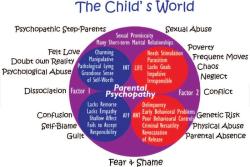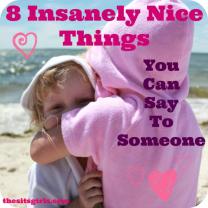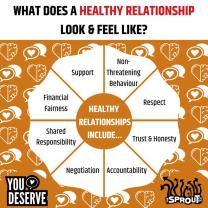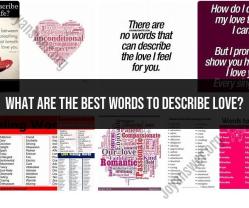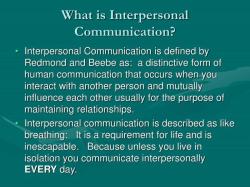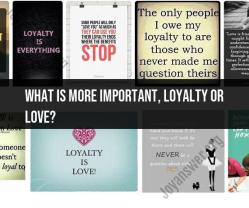Why you can hate the one you love?
The idea that one can experience conflicting emotions, such as love and hate, towards the same person is often referred to as the "paradox of love" or "love-hate relationship." This complex emotional experience is common in various relationships, including romantic, familial, and friendships. Several factors contribute to this apparent paradox:
Intimacy and Vulnerability:
- In close relationships, there's often a high level of emotional intimacy and vulnerability. When you are emotionally close to someone, their actions and behaviors can impact you deeply, leading to intense emotions that may include both love and frustration or disappointment.
Expectations and Disappointment:
- Love can come with expectations, and when those expectations are not met, it can lead to disappointment or resentment. The gap between what we expect from a loved one and what they actually do can create inner conflict.
Individual Differences:
- People are unique, with their own set of values, behaviors, and personalities. While certain traits may attract you to someone, other traits may lead to frustration or irritation. These conflicting aspects can coexist in a relationship.
Past Hurt and Resentment:
- Previous experiences or unresolved issues can contribute to negative feelings in a relationship. If there's a history of hurt or resentment, it may color the way you perceive and interact with the person you love.
Power Dynamics:
- Power imbalances or conflicts within a relationship can result in feelings of both love and frustration. A sense of powerlessness or an inability to control certain aspects of the relationship can lead to negative emotions.
Changing Dynamics:
- Relationships evolve over time, and as they do, the dynamics between individuals can change. This shift may create emotional tension as both positive and negative feelings adapt to the new circumstances.
Fear of Loss:
- Strong emotions, including love, can be accompanied by a fear of loss. When people we care about deeply exhibit behaviors that we find challenging, it can trigger fear and a defensive response, leading to feelings of both love and resentment.
Complexity of Human Emotions:
- Human emotions are intricate and multifaceted. It's not uncommon for individuals to experience a range of emotions simultaneously, even if they seem contradictory.
Understanding and navigating these conflicting emotions require open communication, self-awareness, and sometimes professional support, such as counseling. It's essential to recognize and address negative emotions in a constructive way, fostering a healthier and more balanced emotional environment within relationships.
1. Psychological Factors Contributing to Love and Hate
Love and hate are two powerful emotions that can have a profound impact on our lives. While they may seem like opposites, they are often closely intertwined, especially in close relationships. The following are some of the psychological factors that can contribute to feelings of love and hate towards someone:
Attachment: Attachment style, formed in early childhood, can influence our capacity for love and intimacy. Secure attachment styles are associated with positive relationships, while insecure attachment styles can lead to feelings of insecurity, jealousy, and resentment.
Emotional Dependency: Emotional dependency can intensify feelings of both love and hate. When someone feels overly dependent on another person for their emotional well-being, they may experience intense feelings of love and gratitude mixed with resentment and fear of abandonment.
Value Similarity: Sharing similar values and beliefs can foster feelings of love and connection, while significant value differences can lead to conflict, resentment, and even hatred.
Unmet Needs: When our emotional or physical needs are consistently unmet in a relationship, it can lead to feelings of frustration, disappointment, and eventually, resentment and hatred.
Betrayal: Betrayal, whether it's emotional or physical, can shatter trust and break down the foundation of a relationship, leading to intense feelings of anger, hurt, and even hatred.
2. Coexistence of Conflicting Emotions in Relationships
Love and hate can coexist in relationships due to the complex nature of human emotions and the dynamics involved in close bonds. Several factors can contribute to this coexistence:
Ambivalence: Ambivalent emotions, where both positive and negative feelings exist simultaneously, are common in close relationships. This can be explained by the fact that we are complex individuals with diverse needs and expectations, not always compatible with those of our partners.
History: The history of a relationship can play a significant role in shaping the coexistence of love and hate. Past experiences, both positive and negative, can influence how we perceive and respond to our partner's actions, leading to a mix of love and resentment.
Ideals and Reality: When our idealized expectations of a relationship clash with the reality of everyday interactions, it can create a dissonance that manifests as conflicting emotions. We may love our partner while also feeling frustrated or disappointed by their actions.
Self-Esteem: Low self-esteem can lead to a rollercoaster of emotions in relationships, where love and hate intertwine. Individuals with low self-esteem may feel insecure and clingy, while also experiencing resentment and anger towards their partner for their perceived lack of validation.
3. Interconnectedness of Intense Emotions in Romantic Relationships
The intensity of emotions like love and hate can be particularly pronounced in romantic relationships due to the high stakes involved. When we invest deeply in another person emotionally, our reactions to their actions can be correspondingly strong.
Vulnerability: Romantic relationships often involve a high degree of emotional vulnerability, making us more susceptible to both positive and negative emotions. When we feel vulnerable, we may experience heightened feelings of love and connection, but also intense fear of rejection or abandonment, leading to anger and resentment.
Investment: The time, energy, and emotional investment we put into a romantic relationship can intensify our emotions. When we feel like we have invested heavily in someone, we may experience a deeper sense of love and attachment, but also more intense frustration and disappointment when things don't go as planned.
Passion: Passion, a hallmark of many romantic relationships, can fuel both love and hate. The intensity of passion can amplify both positive and negative emotions, leading to a heightened sense of love and adoration on one hand, and intense anger and jealousy on the other.
In conclusion, love and hate are complex and often intertwined emotions, particularly in close relationships. Understanding the psychological factors that contribute to these emotions and how they coexist can help us navigate the complexities of human connections and cultivate healthier, more fulfilling relationships.


